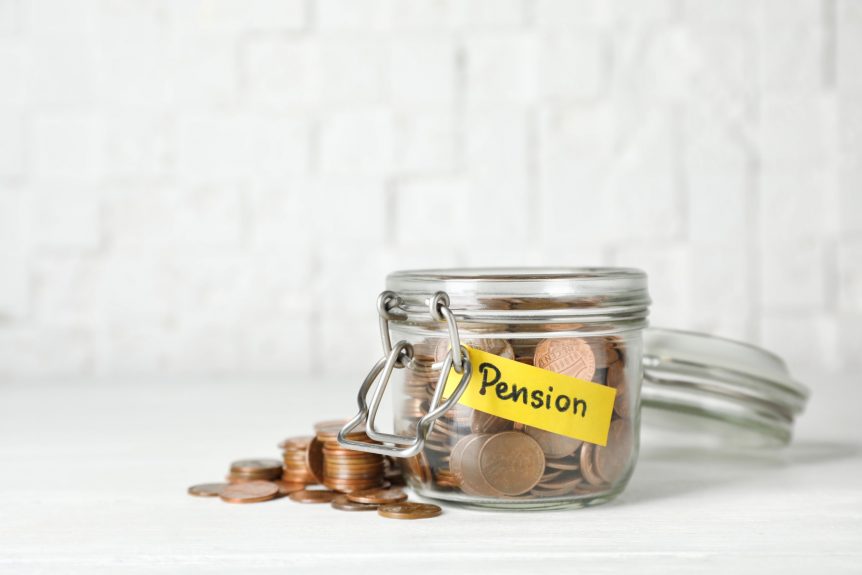UK inflation remained steady last month as prices rose 6.7% year-on-year meaning pensioners are likely to get a bumper 8.5% increase in their state pension next year under the triple lock policy.
The Office for National Statistics (ONS) said on 18 October that prices had risen by 0.5% between August and September, matching market expectations. Core inflation, which excludes energy, food, alcohol and tobacco, saw a slight annual decline, rising by 6.1% over the last year compared to 6.2% in August.
Consumer Prices Index (CPI) inflation for the year to September, the period usually used for the state pension triple lock, was confirmed at 6.7%.
The means pensioners are in line for a bumper pay rise because the triple lock uses the highest of year-on-year earnings growth for May or July (8.5% announced in August), a minimum rate of 2.5% or CPI inflation. Following these rules, the state pension for 2024/25 would increase by 8.5%.
Aegon pensions director Steven Cameron said: “Today’s official figures from the ONS showing year-to-September inflation of 6.7% has turned the heat up ahead of the government’s official announcement, due next month, of next April’s state pension triple lock. All signs point to a bumper year for state pensioners but coming at considerable cost to today’s workers.
“There are reports that the government is considering adjusting the earnings growth figure downwards to reflect recent one-off public sector bonuses which have created a ‘distortion’. While trimming it back by up to 1% would save the government money, it would risk the wrath of the pensioner population ahead of a likely general election next year.”
He explained the 8.5% increase would be the second-largest state pension increase ever, after this April’s 10.1%, and would see the new state pension jump by a bumper £901.02 to £11,501.22 a year.
The ‘old’ state pension, for those who reached state pension age before 6 April 2016, would also rise by £690.40 to £8,812.80.
“But the boost is particularly large when considered in comparison to current inflation trends,” said Cameron.
“While the year-on-year inflation was unchanged this month from last, it had previously decreased for three consecutive months, with the government committed to reducing it to around 5% by the end of the year. This is still far above the Bank of England’s 2% target, so the headline rate may fall even further as we head into the early months of 2024. So a state pension increase of 8.5% could well be double the ruling rate of inflation come next April.
“While an 8.5% increase would be welcome news for state pensioners’ purchasing power, it would do little to quieten the growing concerns that the triple lock in its current form is unsustainable longer term.
“With the burden on current workers who pay for the state pension through National Insurance increasing sharply, even if the government refrains from fiddling with the figures this time round, today’s inflation figure will only amplify calls for whoever is in power after the general election to review the triple lock to make it intergenerationally fair.”
AJ Bell head of retirement policy Tom Selby added: “Provided the government sticks to its state pension triple lock promise, today’s CPI figure should confirm an inflation-busting 8.5% increase for April next year. While that will cost the Treasury billions of pounds, it may be viewed as a price worth paying for prime minister Rishi Sunak given the proximity of the general election and with the Conservatives trailing Labour in the polls.
“If this earnings measure is used, the new state pension will surge to over £11,500 a year – although many will see some of that benefit taxed away if the personal allowance remains frozen at £12,570.
“It is possible HM Treasury will argue NHS bonus payouts inflated July’s earnings and so instead opt for the lower 7.8% figure, which strips out bonuses. This would allow the government to claim it has stuck with the triple-lock pledge while saving some cash, although it would inevitably face accusations of a stealth attack on pensioner incomes.
“If the earnings element of the triple-lock is axed and instead state pensions increased by 6.7%, in line with September’s CPI inflation figure, the new state pension would rise to £217.50 per week, or £11,310 per year, in April 2024. While ditching an element of the triple lock isn’t without precedent – the Treasury did this in 2022/23, the last time earnings spiked significantly – the political dynamics have shifted since then.”
‘Slow and steady’
Quilter Investors chief investment officer Marcus Brookes described the path back to target for inflation as ‘slow and steady’ but noted that UK inflation remained “incredibly elevated and much more so than peers”. In contrast, US inflation sat at 3.7% last month.
He added: “With geopolitical tensions rising, energy and petrol prices are once again on the way up and inflationary pressures risk hitting an economy that has gone through a painful cost of living crisis.”
The numbers left the Bank of England in a “difficult position”, Brookes said, following its decision to hold interest rates at its last monetary policy committee meeting.
“The question becomes when they have done enough, but with inflation taking so long to come back down to more palatable levels that is a difficult question to answer and risks policy misstep,” he said.
“We think the Bank of England has done enough and will be led by external factors, such as the Federal Reserve, but they will not want to appear to be doing nothing, especially when inflation remains so high.”
Elliot Gulliver-Needham & Jenna Brown (Professional Adviser)

